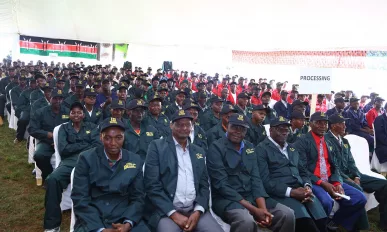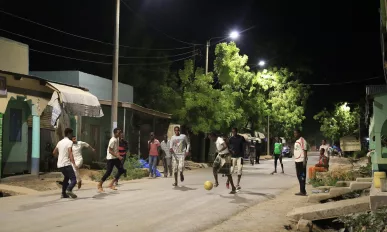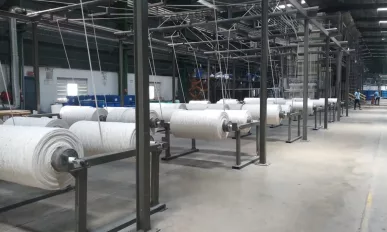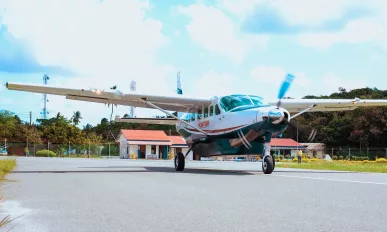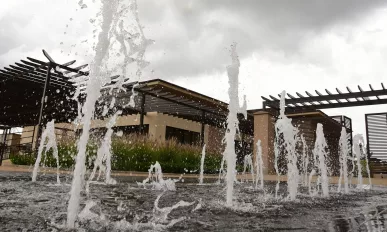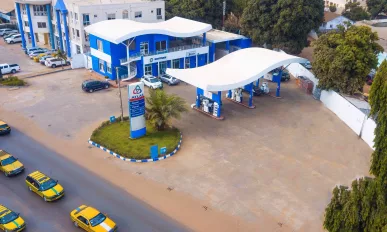Issue 72
Thika Cloth Mills : Bringing Textiles Home
Kenya’s Thika Cloth Mills is investing in modern techniques to help the national industry stand on its own two feet.
Rainoil 2019 : The Pride of Nigerian Petroleum
Rainoil has risen to the fore of the nation’s oil and gas industry. Gabriel Ogbechie, Founder and Group Managing Director, tells its story.
Kyoga Hauliers : Going the Extra Mile
A down to earth family business, Kyoga Hauliers is embodying progress against an optimistic East African backdrop.
Kenya Power and Lighting Company : Kenya’s Critical Connector
Kenya Power is completing a number of projects geared towards connecting more consumers and businesses to vital power resources.
Kanoria Africa Textile Plc : The Textile Transformer
Sustainably manufacturing over 12 million metres of denim each year, Kanoria Africa Textile PLC is driving diversification across Ethiopia.
Hybrid Poultry Farm : Securing Self-Sufficiency
Hybrid Poultry Farm continues to provide an affordable, high-quality and customer-focused solution for retailers and QSR operators.
Hungry Lion : The Continent’s Progressive QSR Player
Hungry Lion has found ideal footing for expansion over the coming years, owed to optimised operations and an admirable outlook.
Hariss International : Proudly Ugandan
Hariss International and its flagship Riham brand are effectively setting new standards in the food and beverage industry.
Flightlink : Flying High
16 years on, the story of Flightlink continues to gather momentum. Munawer Dhirani, the man behind the company’s rapid rise, tells all.
DT Dobie : Kenya’s Adaptable Auto Dealer
DT Dobie prides itself on an agile setup and customer-first service, now established as a reliable OEM partner both at home and abroad.
DMJ Architects : Design Durability
DMJ Architects has been contributing to the development of Kenya and the wider region since it set up shop back in 1965.
BAJ Freight and Logistics Limited : Ghana’s Logistics Flagship
Celebrating a decade in existence, BAJ Freight and Logistics Limited continues to propel the reputation of Ghanaian freight forwarding services on the international stage.
Atlas Energy Limited : The Petroleum Patron
Having obtained a 30 percent market share in just three years, Atlas Energy is taking the Gambian petroleum industry by storm.



